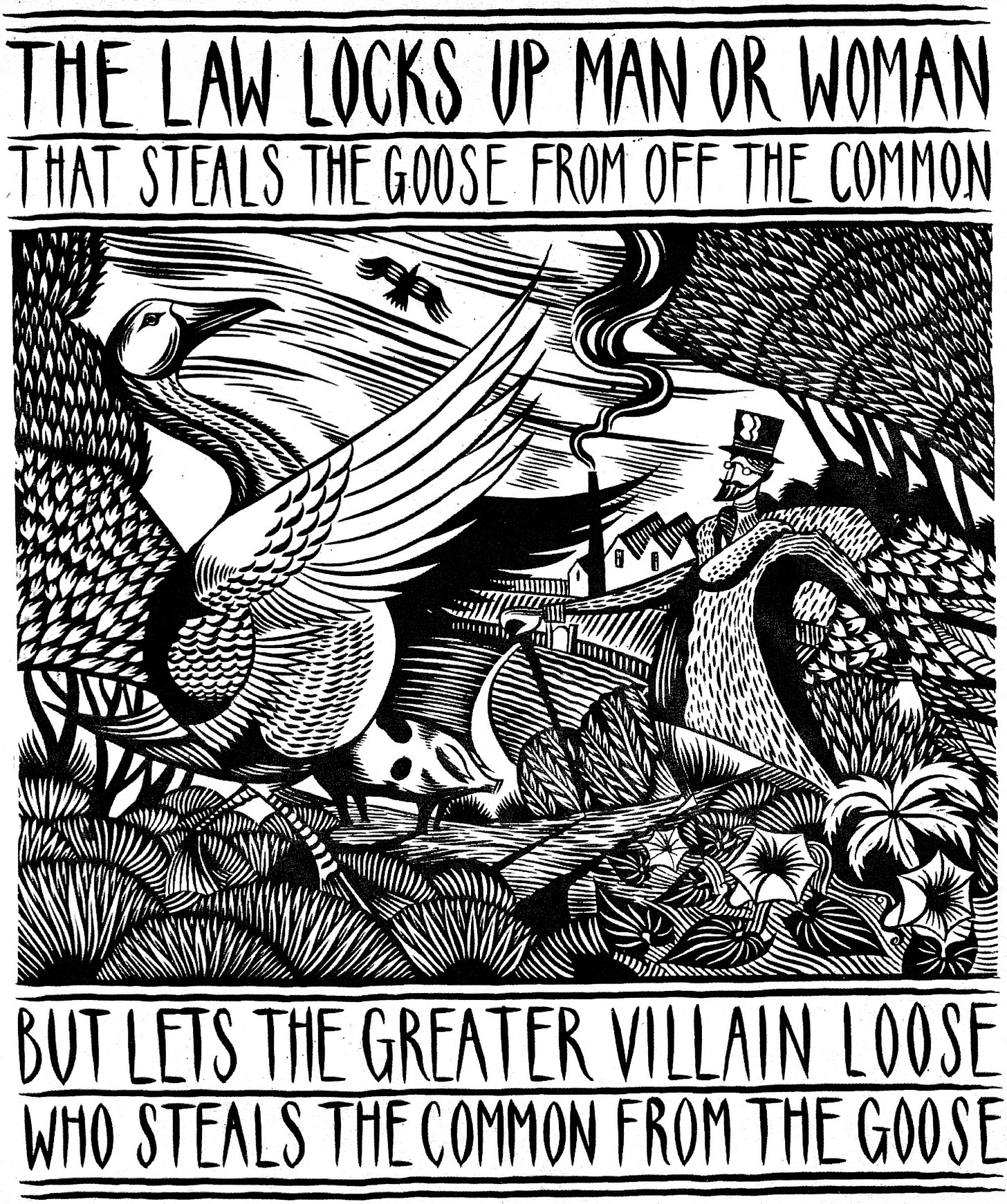As we've written before, until we resolve the question who who owns the land, we'll never be able to properly fulfil our dreams and ideals. Throughout history, there have been valiant attempts to resolve that question and return vast tracts of land back to the commons where they rightly belong. It's in the spirit of inspiring people to keep on trying until we win that we present this material which was originally published by D.I.Y. Culture:
The Diggers
On this day, 1 April 1649, a farmer and writer called Gerrard Winstanley along with a small group of 30 to 40 men and women occupied St. George's Hill, Watton, Surrey, England and began tilling the land collectively. Over the coming months, numerous local people would join them and for the movement which became known as the Diggers.
Winstanley was a Protestant who began to write pamphlets criticising the church which held that "god is in the heavens above the skies". Instead he argued that god was "the spirit within you". In a pamphlet published in January 1649 he wrote: "In the beginning of time God made the earth. Not one word was spoken at the beginning that one branch of mankind should rule over another, but selfish imaginations did set up one man to teach and rule over another."
The politics of the Diggers were a form of proto-communist anarchism, advocating direct action, common ownership and the dissolution of hierarchy.
For this and hundreds of other stories, get a copy of this book: Working Class History: Everyday Acts of Resistance & Rebellion.
The lament for our land in song
“In England, people lived in a society that had been oppressed for so much longer. And so with English folk songs, you have to lift the lid to find out what is going on, and think about what is implied. This is why, for instance, there are so many songs about poaching, after the laws suddenly created criminals out of almost everyone – their way of life became a crime for which they would be hanged or deported.”
Martin Carthy
“Atrocities have been practiced upon the English, not by overseas invaders or by empire builders but by their own governing elite. It was the domestication of its own population that went on to provide the blueprint for England’s later colonial adventures.”
Chris Wood, “Tresspasser”
“A great song speaks universals about specific happenings and is relevant at all times. Sometimes we (Scots and Irish) forget that the first colony of the British Empire was in fact England.”
Dick Gaughan
A history of fighting back
★29th June 1816. After several gamekeepers have been clubbed to death, five men from Mill Pond, Ely, are hanged for poaching. Soon after, the butcher who owned the gallows cart is found suffocated head first in his own cess-pit and the coffin-maker is found dead in a large water pipe. The citizens of Littleport and Ely, Cambridgeshire, were at the forefront of resistance to property accumulation, enclosure and rural proletarianisation.
The rich had stolen the land that belonged in common ownership - with the continued collusion of corrupt politicians and spineless local authorities, they are still at it. We must take it all back and evict the rich by any means necessary.
★Inside the Battle Over the UK’s Ancient Woodlands. Overlooking the Chilterns in the heart of the English countryside, Jones Hill Wood is an ancient woodland which is due to be felled for the controversial HS2 rail project, the largest infrastructure project in Europe. A diverse community of protestors has formed a resistance camp in a bid to stop the woods being cut down. Can putting their bodies on the line through direct action and ecological surveying save the woods? 17:40mins.
★A major contribution towards the bitter hatred that fed the English Revolution of 1649 and the righteous removal of the King's head from his shoulders, was the theft and enclosure of the commons. This clip is from the excellent historical drama:
Cromwell, 1970. Directed by Ken Hughes, with Richard Harris in the lead.







This may be interesting? https://www.tickettailor.com/events/modifythevan/1431290
Three Acres And A Cow: A History of Land Rights and Protest in Folk Song and Story
Some great links here, Dave - thanks!
I always come back to the speech of Chief Seattle (as it's known) when asking who owns the land: it's the land that owns us, right?